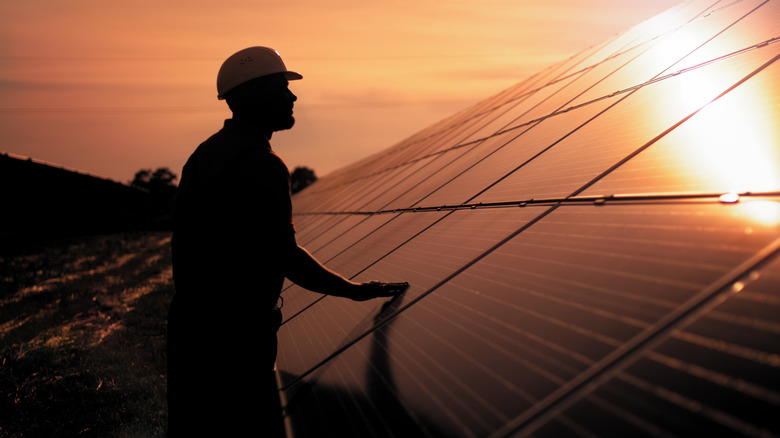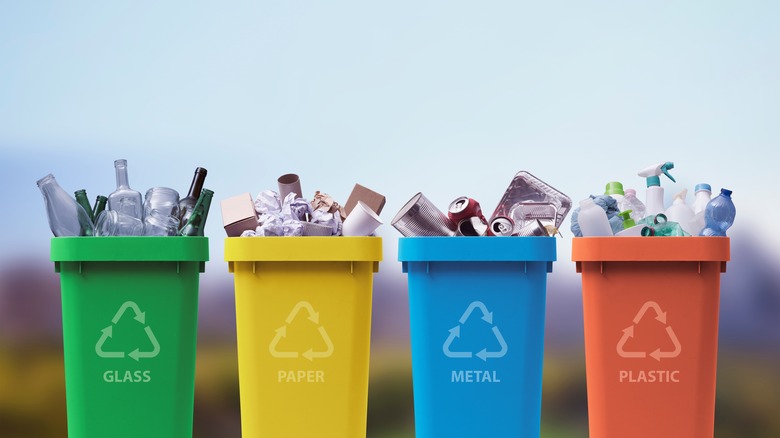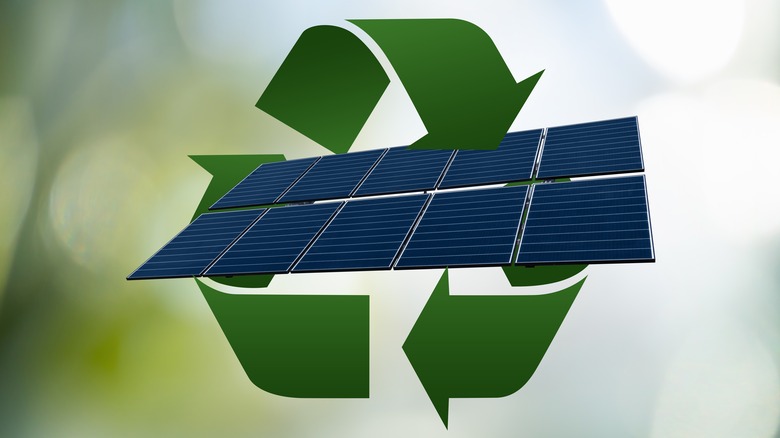
GRAFstock/Shutterstock
By Rob Rich/
There are a lot of factors to consider when it comes to installing solar panels. How much will it cost? Are there any available subsidies or reimbursements? What kind of panel fits your situation best? And so on. But another important thing to consider is what to do with old solar panels when it’s inevitably time to replace them.
Granted, unless you move into a space that already had panels installed you probably won’t have to figure out a game plan for a couple of decades. But eventually you’ll have to throw them away — thus somewhat negating the more environmentally friendly energy solution they represent.
But surely something as Green as a solar panel is also recyclable, right? It wouldn’t make sense to develop these kinds of technologies only to have them waste away in a landfill, in some cases potentially poisoning the ground around them due to the use of toxic materials in their construction. There has to be a way to strip them down to their base elements, or at least repurpose them.
Is recycling possible?

Stokkete/Shutterstock
Recycling solar panels that have outlived their usefulness or lost efficiency over time is indeed possible, and, as the EPA notes, it’s something that’s already being done. It turns out that many of a typical (i.e. housed in a glass frame) solar panel’s components are made up of — or just are — elements that are extracted and repurposed fairly often.
Most silicon solar panels are made up of a metal frame, some wires, and sheets of glass (sometimes plexiglass). All things that are recycled fairly regularly. Even the silicon cells themselves can be melted down to separate out the silicon and other metals. Other parts like batteries or inverters can be dealt with like other recycled electronics (such as old smartphones).
Of course, solar panels that use toxic metals like cadmium (or lead) can make the process a bit trickier — though a manufacturer can extract those hazardous metals from thin-film solar panels. So recycling solar panels isn’t stymied by a lack of technology, experimental methods, or potential dangers. However, it’s currently far more typical for discarded panels to end up in the garbage rather than in a recycling center.
Why recycling doesn’t always happen

Jamieb/Getty Images
The simplest and most obvious (and most depressing) reason that solar panels usually end up in a landfill is cost. As observed by the National Renewable Energy Laboratory (NREL), the cost of recycling a single solar module is significantly higher — anywhere from three to 45 times — than simply dumping it. Specifically, it’s approximately $1 to $5 to house one in a pile of trash versus $15 to $45 to break one down into reusable bits.
Beyond the economics of putting more value in money than the future of the planet, the general act of recycling solar panels is just straight-up complicated. As EnergySage notes, the individual components and materials are fairly easy to recycle separately. The real problem is separating them in the first place. Glass panels can’t be lumped in with aluminum frames, and you can’t toss copper wires into the same processing pile as plexiglass. Each solar panel has to be meticulously disassembled, and that’s what makes the current recycling process so expensive.
Sometimes the simplest way to recycle old solar panels is to find another use for them, assuming they still work and aren’t worn out to the point of being a possible hazard, of course. For example, a panel that’s lost efficiency can be set up to power something smaller than a home or business electrical grid.
How to recycle solar panels

Scharfsinn/Shutterstock
When it comes to intentionally recycling your outdated or otherwise unwanted solar panels, your location may limit your options. That previously mentioned recycling cost (compared to landfilling) is one of the biggest hurdles in the U.S. along with a lack of regulations at the Federal level. Some individual states — such as California, Hawaii, and New Jersey – are set up for it, and a small list can be found on the EPA’s official website, but not all of them. In Europe, policies were passed in March of 2024 requiring solar manufacturers to take care of recycling their products once the time is right.
If you reside in the U.S. and want to recycle, though, be prepared to do a little research first. You’ll want to look into whether or not your state has any solar recycling programs or regulations, but barring that there are several companies out there like Earth911 or the SEIA (Solar Energy Industries Association) that claim to recycle old solar panels for you. However, none of these companies are currently endorsed by the EPA so if you decide to go that route it’s important to do your due diligence first.
Instead, consider contacting either the manufacturer of your solar panels or whoever installed them for you. They might have some tips for you, and if they already have an established relationship with a panel recycling company (most of which are intended to accommodate businesses and organizations, not individuals) they might be able to help you out.